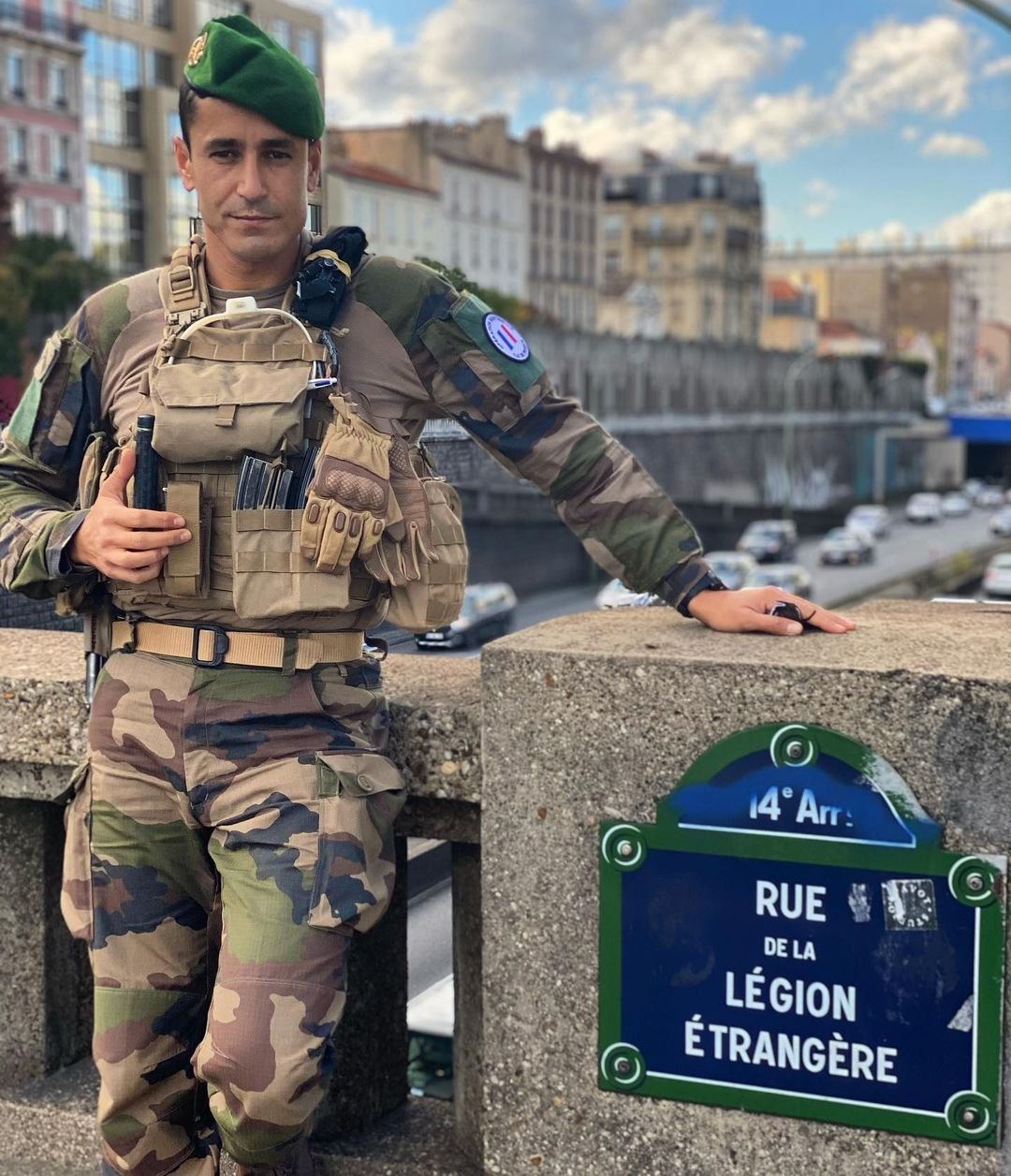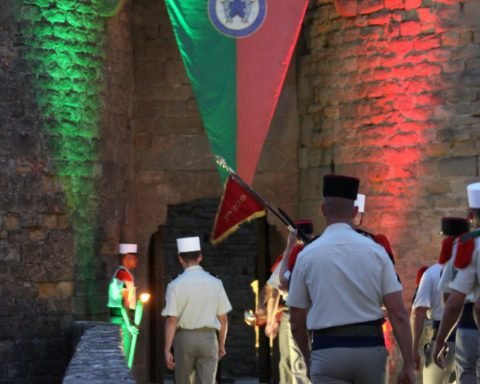French Guyana
November, 2020
I did this interview with Raf that I met during our sergeant training (FG1) in Castelnaudary a few years ago now. In Raf, I knew a person who always keeps an excellent state of mind, even in the shittiest situations. I believe that this approach is essential to be and last in the French Foreign Legion. His testimony is the point of view of a person with an extraordinary mindset.
Raf is actively sharing his personal experience about the French Foreign Legion and his adventures with his over 29k followers on Instagram. Follow him if you want to enjoy his amazing photos and get some insights about the life of a Legionnaire: @rafale75
Aron: Hi Raf! I’ve been wanting to do this interview with you for a long time, fortunately we both have some free time. Can you talk about yourself and your early career in the Foreign Legion?
Raf: I am currently 35 years old, I joined the Legion in Paris at the Fort de Nogent. I was a math student, but after finishing university I realized that this was not what I wanted to do, so I started working in a tobacco shop. It was a job that I liked very much, because I liked to meet people, to talk, to sell things, everything that is commercial, in fact. But after two years I wanted to change. My cousin was a Legionnaire in the 2°REP, so I asked him for information and he explained to me the steps to take. I also did some research on my own. I watched all the videos on YouTube about the Legion and then I decided to join.
A : So you went to the Fort de Nogent
R : Yes, I went there in December before Christmas, but there wasn’t much room at that time because they were in the middle of their preparation period. So the master corporal told me to come back another day. So I took my bag and went home, but the next day I showed up again and this time it worked.
A : What happened next?
R : I was immediately put in charge because I was a French speaker. I accompanied the guys to the infirmary, I looked for people if necessary. I was running around, so I wasn’t bored.
A : So you became caporal du jour as you arrived.
R : Yes. It lasted two weeks, because at Christmas time there weren’t too many people leaving for Aubagne, so it was a little long.
A : Then you passed the selections and went to training at a time when new legionnaires were not allowed to own a phone. Talk a little about this period. How did you live the first months in the Legion? Was it what you expected?
R : It was exactly like in the videos. I arrived with the first wave in Castelnaudary at the 1st company, so that allowed us to quickly get into the game. Afterwards, on the farm, we did a lot of sports, learning the first moves to make in combat. I think this is the most exciting time in the life of a legionnaire because it’s the time when you become a member of the “Family”.
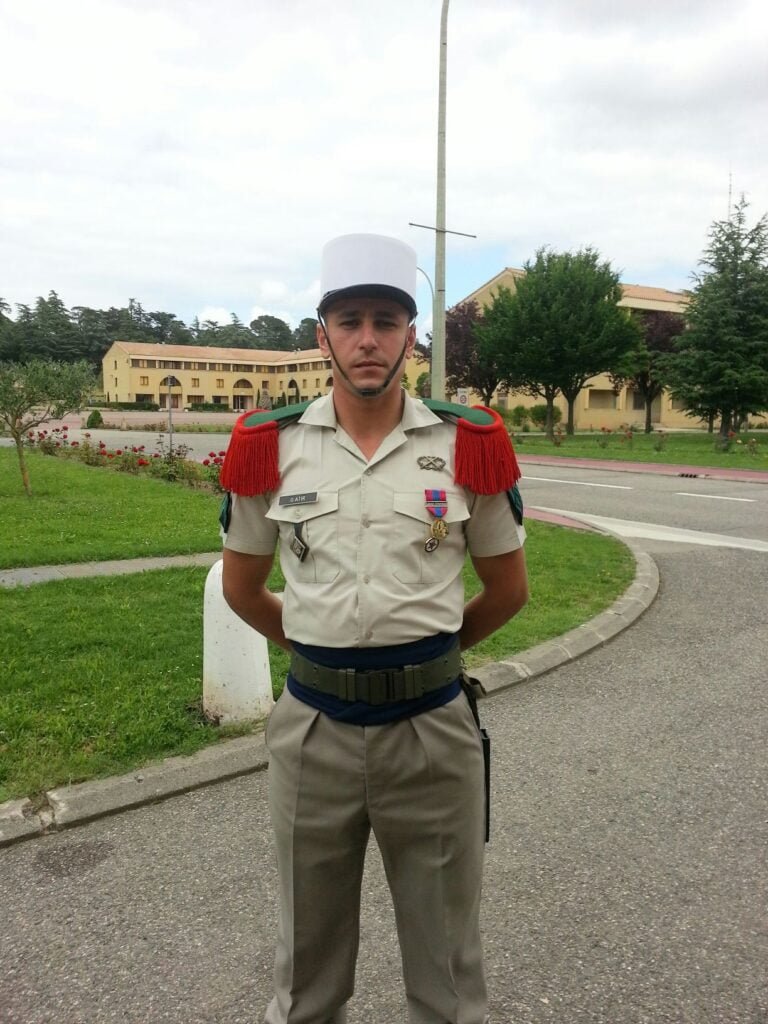
Our training was particularly difficult. There were 32 of us at the beginning, but only 13 transferred at the end. This was unheard of, according to the company’s commanding officer. Today there are only three people left in the Legion from my section. We’re all sergeants now.
Are you interested in joining the French Foreign Legion? Download our app for free which helps you to get better prepared for the selection test! Learn more
A : Which regiment did you go to? Directly to the 3REI?
R : No. In fact, I asked for either the 3REI or the 2REI at the end of the training, but the captain told me that if I wanted to go to the 3REI my papers had to be in order. He suggested that I stay in Castel and then the next year I could go to Guyana.
A : What was your time like in Castel?
R : I went straight to the PPFGE (the training allowing legionnaires to pass corporal in a short time) and then became a corporal. I participated in the training of 3 platoons of new legionnaires. Then the next summer, I was assigned to the 3REI as planned. I left there for two years, but in the end I had done three. Before I left, I had spoken with a person who had been to Kourou three times and he told me that you either love Guyana or you hate it, but you won’t know that until you’ve been there.
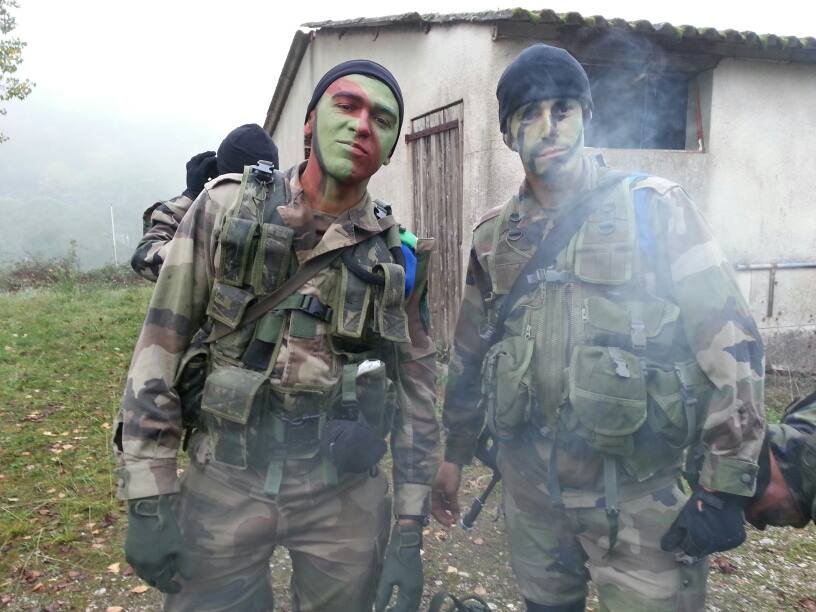
A : Indeed. I was able to experience the atmosphere on my own skin. So, you arrived in Guyana. What were the first things you did?
R : I arrived in Guyana in August and when I went before the captain, I asked to do the AMF course, but it was denied. He told me that I should gain experience, acclimatize a little and then we’ll see. And fortunately he told me that, because it allowed me to do missions in the forest as part of Operation Harpie. It is a mission against illegal gold mining on the French territory. I was also able to participate in the operation Titan which consists in protecting the space center in Kourou.
A : But the AMF course wasn’t inaccessible
R : No, I started the training during my second year. Probably the most difficult course I did in the legion.
A : Can you tell us more about it? What exactly is the training like?
R : Well, you start with the presentation of the course in front of the regimental chapel. You see the instructors arrive, they explain a little about what to expect and then it begins. Four days of non-stop testing. The 8km TAP run, obstacle course, different strength tests, pool tests and everything you can imagine. You are always carrying a stretcher with someone on it.
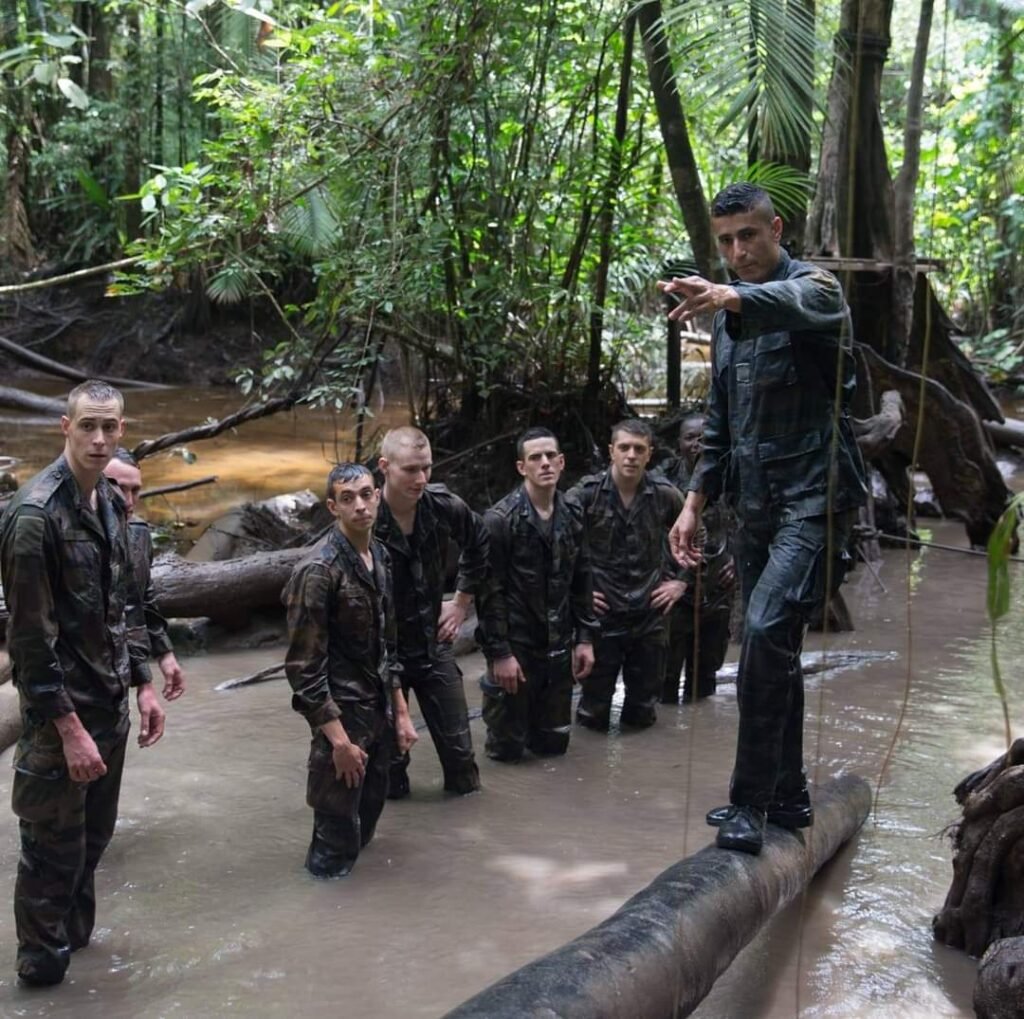
There is also another thing you should know that during this course, the only thing yout have to say is “I quit” to the instructors and you leave the training without having to explain why. You will do this in front of your unit commander or section chief. Trainees are also graded from the first day and there is a ranking at the end of the week. Depending on your position in this ranking, you receive a number by which you will be called throughout the course. I was second, so I was trainee number two. This course is reserved only for non-commissioned soldiers, legionnaires, corporals and master corporals, but during the training there is no rank. We were just numbers.
A : What was the program after that?
R : At the beginning it was rather learning. How to navigate a pirogue, how to cut a tree with a chainsaw, how to cross a river, the rules to respect in the forest and so on.
A : So it was more pedago in the end?
R : Yes, in fact every time there was an exercise, everyone had to pass as if they were an instructor. We had to explain what to do as if we had a platoon of officers or foreign trainees in front of us.
A : But not only
R : <He’s laughing>. No, it was a massacre at the same time. There was no time to recuperate or to get back into shape. Zero free time or rest, except on Sunday afternoons between 4 and 6 o’clock, because there was a medical check-up that was mandatory for everyone to see if they had caught something. There were many who had to leave the course because of a health problem.

It was a very tiring course and you never knew when the day was going to end. During the survival phase, we often finished around 2-3 am and started again at 5 am. Or we didn’t sleep at all, which was also an option that happened quite often. We were weighed at the beginning and at the end of the course and I lost 13 kilos. In the end, there were only 9 of us who made it out of 30 trainees at the beginning.
A : What happened once you finished?
R : I was super happy and I was assigned to the CEFE, so it was definitely different. As an instructor, it’s not the same thing at all, because I was on the other side. We used to give the course to soldiers from different countries such as the Netherlands, Suriname, but there were also officer cadets from St. Cyr who came to spend their training period in Guyana. To this day there are officers, captains most of the time, who say hello to me and tell me that “aah it was you who terrified us at the CEFE?” It was an unforgettable experience.
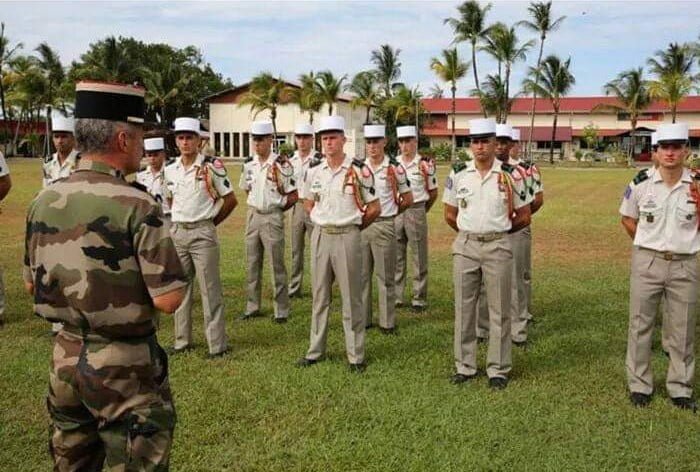
Following that Raf returned to France, we talked about which regiments he wanted to join and why, and where he ended up in the end. Stay tuned for the second part of the interview.
Thanks for reading! If you have any questions leave a comment below.
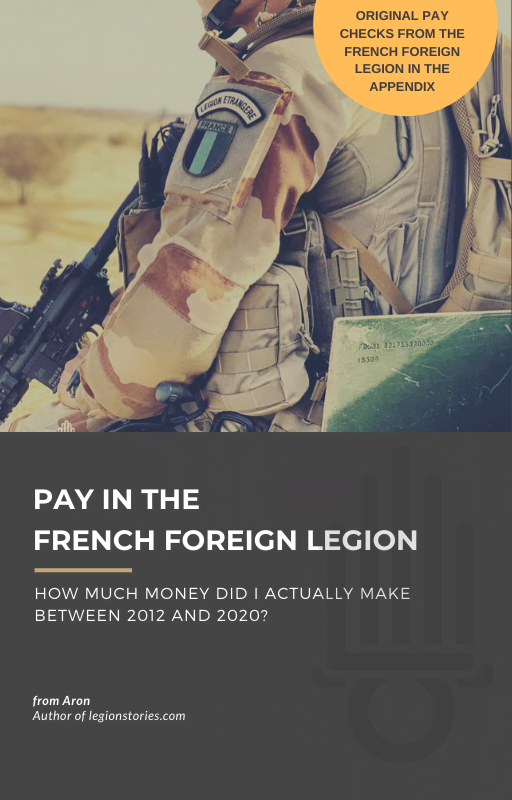
Ebook about the Pay in the French Foreign
Instead of giving you complaining and misleading half sentences, I decided to share my own paychecks in this e-book. I will tell you how and how much money I made during my time in the French Foreign Legion

